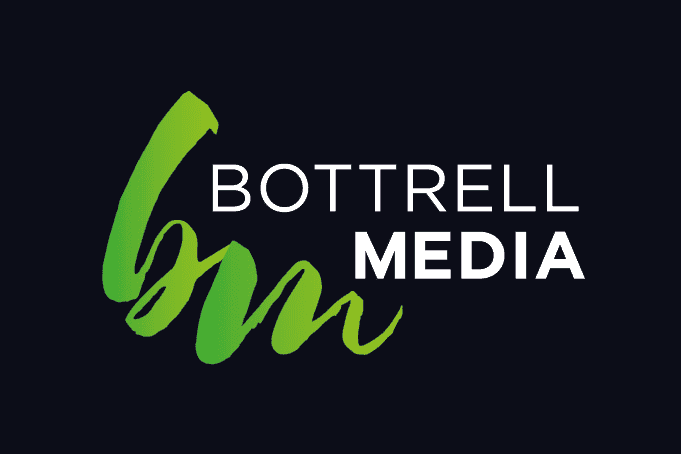
WordPress for Non-Profits: Strategies and Solutions for Success
Non-profit organizations play a crucial role in addressing various societal issues, from education and healthcare to environmental conservation and social justice. In today’s digital age, having a strong online presence is essential for non-profits to reach a wider audience, raise funds, and effectively communicate their mission. WordPress, a versatile and user-friendly content management system (CMS), offers a powerful platform for non-profits to achieve these goals. In this article, we will explore strategies and solutions for non-profits to succeed using WordPress.
Choosing the Right WordPress Hosting
Before diving into the technical aspects, it’s crucial to select the right hosting provider for your WordPress website. Non-profits often have tight budgets, so consider affordable yet reliable hosting options. Look for hosts that offer good customer support, fast loading times, and scalability to accommodate your organization’s growth.
Additionally, some hosting providers offer discounts or special pricing for non-profit organizations, so be sure to explore these options to maximize your budget and support your mission effectively.
Selecting the Right Theme
WordPress offers a plethora of themes, including many designed specifically for non-profits. When choosing a theme, consider your organization’s branding, goals, and the functionality you require. Themes like “Charity Pro” or “GivingPress Lite” are tailored to non-profit needs, providing donation integration and storytelling features.
Furthermore, prioritize selecting a theme that is regularly updated by its developers to ensure compatibility with the latest WordPress version and security patches, which is crucial for the long-term stability and security of your non-profit website.
Customizing Your Website
WordPress’s flexibility allows for extensive customization. Customize your website to reflect your non-profit’s unique identity and mission. Ensure that the design is user-friendly and mobile-responsive, as many users access websites from smartphones and tablets.
Consider conducting user testing and gathering feedback during the customization process to ensure that your website not only reflects your non-profit’s mission but also provides an intuitive and enjoyable experience for your audience, regardless of the device they are using to access it.
Effective Storytelling
Non-profits thrive on storytelling. Use WordPress to create engaging content that highlights your organization’s impact. Incorporate multimedia elements such as videos, images, and testimonials to convey your message effectively. Utilize blog posts, success stories, and newsletters to keep your audience engaged and informed.
Fundraising Integration
One of the most critical aspects of non-profit websites is fundraising. WordPress offers various plugins and tools to seamlessly integrate donation forms, fundraising campaigns, and payment gateways. Plugins like “GiveWP” and “Charitable” simplify the donation process, making it easier for supporters to contribute to your cause.
Additionally, regularly update and optimize your donation forms to streamline the process further, provide multiple payment options, and express gratitude to your donors promptly through personalized thank-you messages, fostering a strong donor relationship and encouraging continued support.
Engage with Your Audience
WordPress allows you to build interactive communities around your cause. Utilize plugins like “BuddyPress” or “bbPress” to create forums and social networking features that foster engagement among your supporters. Encourage discussions, Q&A sessions, and feedback to build a sense of belonging.
Additionally, consider leveraging social media integration within your WordPress site to connect with your audience on platforms they already frequent. Sharing content, testimonials, and success stories on platforms like Facebook, Twitter, and Instagram can further extend your non-profit’s reach and create a sense of community that transcends your website. Building strong, engaged communities around your cause is a powerful way to drive support and advocacy.
SEO and Content Strategy
Optimize your content for search engines (SEO) to improve your website’s visibility in search results. WordPress offers various SEO plugins like “Yoast SEO” and “All in One SEO Pack” to help you with on-page optimization, metadata, and keyword analysis. Develop a content strategy that focuses on relevant keyword.
Moreover, remember that SEO is an ongoing effort, so regularly monitor your website’s performance in search engine rankings and adapt your content strategy based on changing trends and user behaviour to maintain and improve your website’s visibility over time.rds and topics to attract organic traffic.
Accessibility and Inclusivity
Make sure your website is accessible to everyone, including people with disabilities. WordPress provides tools and plugins to enhance accessibility, such as alt text for images, keyboard navigation, and responsive design. Ensuring inclusivity is not only ethical but also necessary for compliance with legal regulations like the Americans with Disabilities Act (ADA).
Additionally, consider conducting accessibility audits and testing with individuals who have disabilities to ensure that your website is truly user-friendly and inclusive, allowing all visitors to access your content and engage with your non-profit’s mission effectively.
Security
Protect your website and user data from potential threats. Regularly update WordPress and all installed plugins and themes to patch security vulnerabilities. Implement security plugins like “Wordfence” or “Sucuri Security” to monitor and protect against common threats.
Measuring Success
To gauge the impact of your efforts, use analytics tools like Google Analytics or plugins such as “MonsterInsights” to track website traffic, user behavior, and conversion rates. Regularly review these metrics to refine your strategies and improve your website’s effectiveness.
Furthermore, don’t just focus on quantitative metrics but also gather qualitative insights by soliciting feedback from your website visitors, donors, and supporters through surveys and contact forms. This holistic approach will provide a well-rounded view of your website’s performance and help you make data-driven improvements.
Conclusion
WordPress offers a robust and cost-effective solution for non-profit organizations looking to establish a strong online presence. By following these strategies and utilizing the available solutions, non-profits can create compelling websites that engage supporters, raise funds, and drive positive change in their respective causes. With the right approach, your WordPress-powered website can be a powerful tool for success in the non-profit sector.
A well-crafted WordPress website isn’t just an online presence; it’s a platform for amplifying your non-profit’s mission and making a lasting impact on the world. By harnessing the versatility, affordability, and user-friendly nature of WordPress, non-profits can effectively connect with supporters, raise the funds necessary to fuel their initiatives, and ultimately advance the causes they hold dear. Remember, success in the non-profit sector often starts with a strong online foundation, and WordPress can be the key to turning your vision into a reality.
Contact us at @ Bottrell Media
93 Lawes St, East Maitland NSW 2323
P: 02 40275782
E: office@bottrellmedia.com.au
Socials & Links for Bottrell Media
Facebook – Bottrell Media Facebook Page
Instagram – Bottrell Media Instagram Page
Google – Bottrell Media Google
Helpful articles
Essential Plugins for Maitland WordPress Websites
How to Secure Your Maitland WordPress Website
Maitland Web Design: Incorporating SEO Best Practices
Professional Services (Links)


